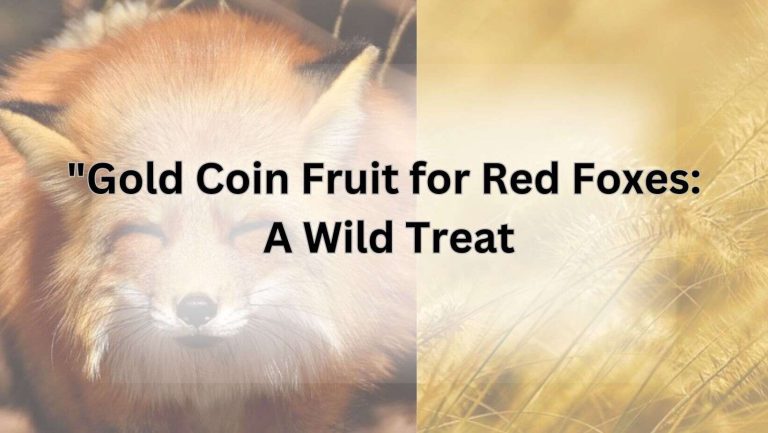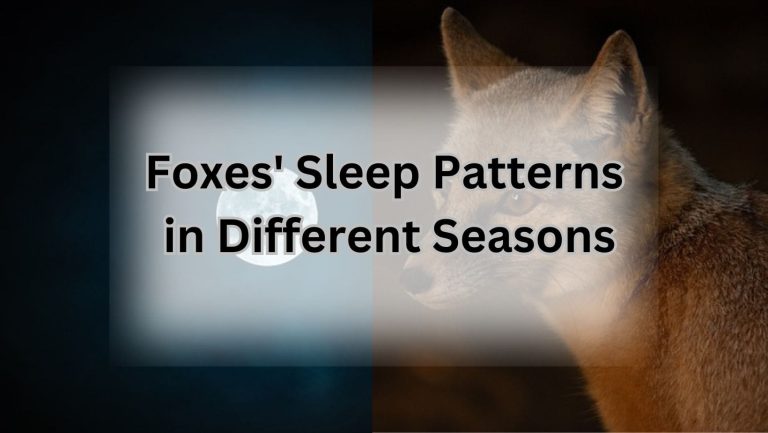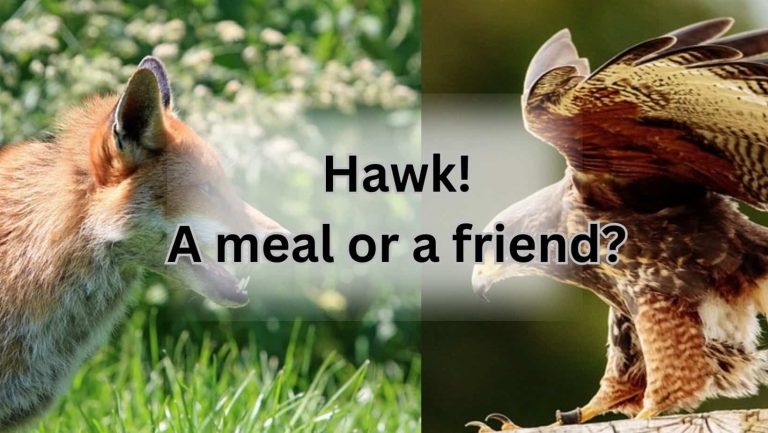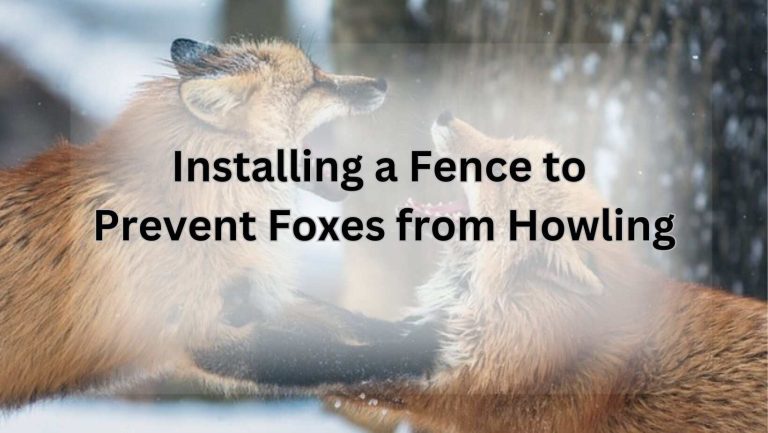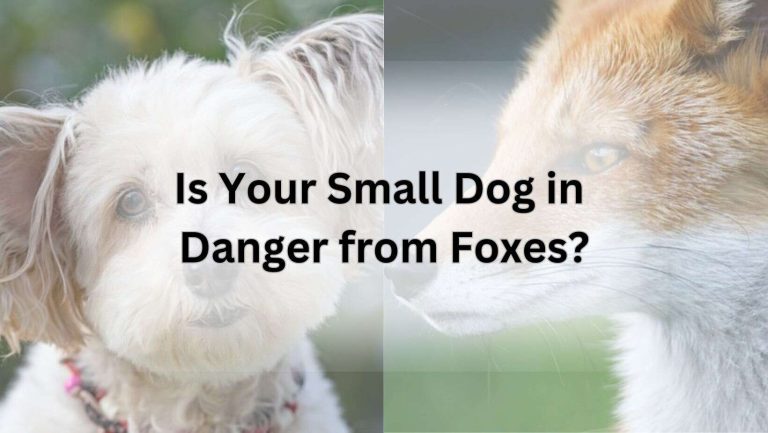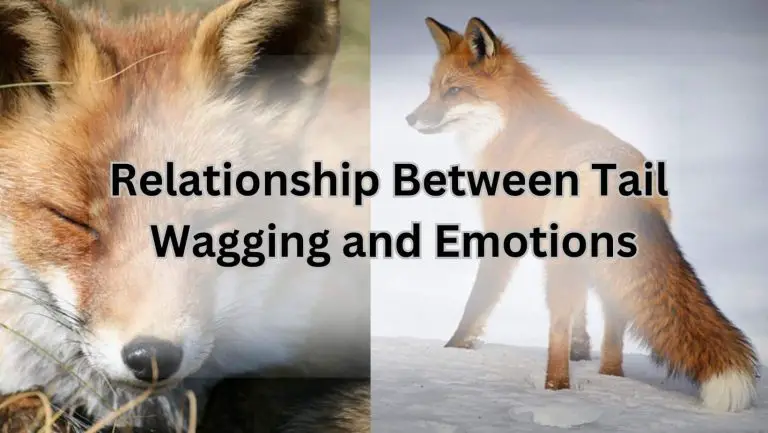Do Foxes Really Snack on Corn? Unveiling the Truth!
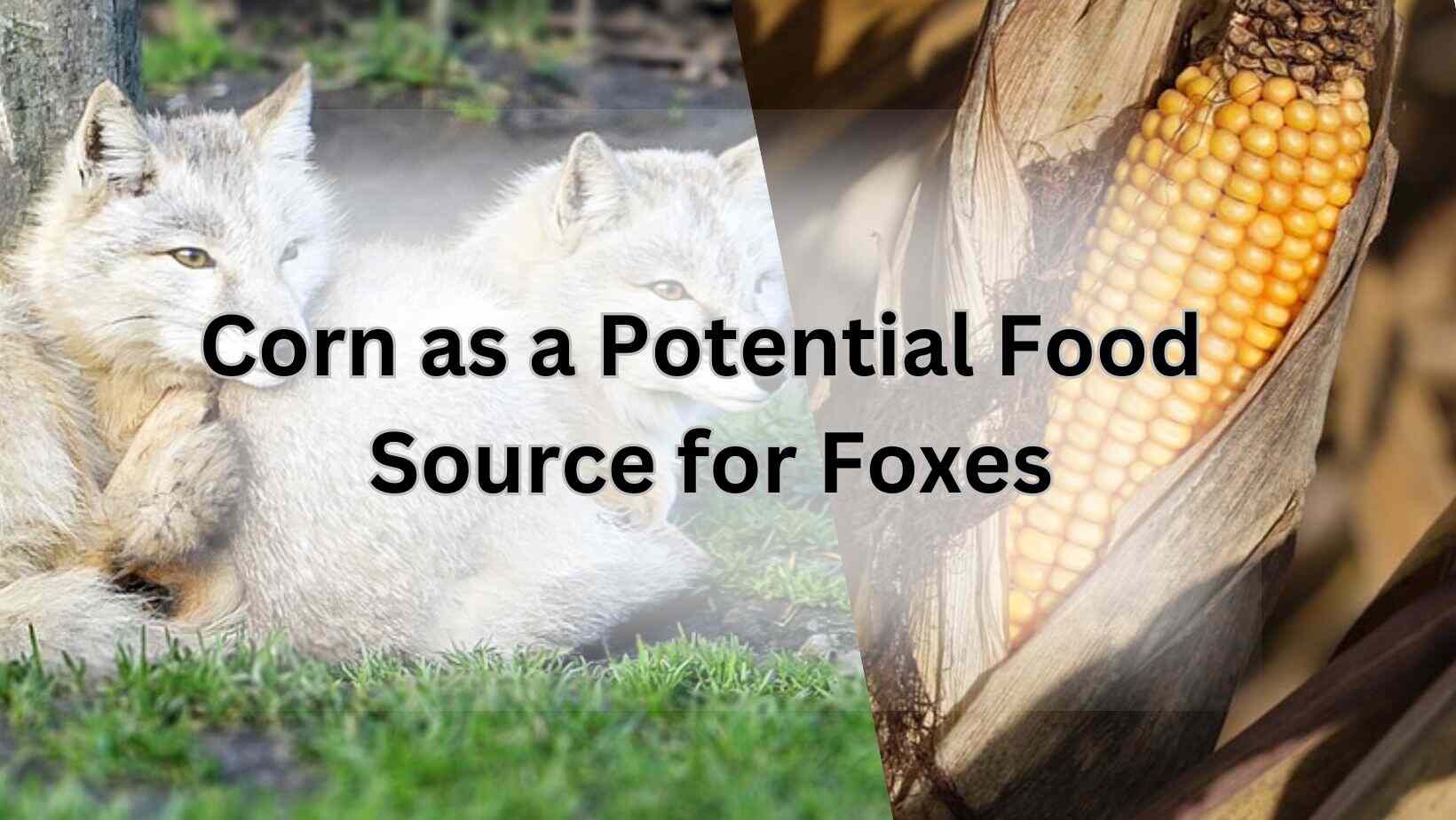
Do Foxes Eat Corn
Yes, foxes do eat corn, but it is not a staple part of their diet. Let’s delve into the fascinating world of foxes and their dietary habits to understand the role of corn in their lives.
Diet of Foxes
Foxes are opportunistic eaters, meaning they will consume a variety of foods depending on what is available in their environment. Their diet typically consists of small mammals, birds, insects, fruits, and vegetables. Corn can be a part of their diet, especially if they come across cornfields or gardens.
Impact of Corn on Foxes
While corn can provide some nutritional benefits to foxes, it should not be their main source of food. Too much corn can lead to digestive issues and obesity in foxes. It is best to offer corn as an occasional treat rather than a daily meal.
Alternatives to Corn in Foxes’ Diet
If you want to attract foxes to your garden or property, consider offering a variety of foods that are more suitable for their diet. This can include meat scraps, fruits, vegetables, and even commercially available fox food. By providing a balanced diet, you can help ensure the health and well-being of the foxes in your area.
So, while foxes may enjoy nibbling on some corn now and then, it’s important to remember that moderation is key. By understanding their dietary needs and offering a diverse range of foods, you can support the local fox population and enjoy watching these clever creatures thrive in their natural habitat.
Understanding Foxes’ Eating Habits
Do foxes eat corn? Let’s delve into the fascinating world of foxes and their dietary preferences. These cunning creatures have an interesting relationship with food, so let’s explore how corn fits into their menu.
Carnivorous Nature of Foxes
Despite their reputation as meat-eaters, foxes are actually quite versatile in their diet. While they primarily feast on small mammals like mice, rabbits, and birds, they also enjoy fruits, vegetables, and even insects. This omnivorous tendency allows them to adapt to various environments and food sources.
Omnivorous Tendencies in Foxes
When it comes to corn, foxes are not picky eaters. In the wild, they may come across cornfields and indulge in the occasional nibble. However, corn is not a staple in their diet, but rather a tasty treat that they may enjoy if the opportunity arises.
Foraging Behavior of Foxes
Foxes are skilled foragers, using their keen sense of smell to locate food sources. While they may not actively seek out corn as a primary food source, they are curious creatures that may sample it if it’s available. So, if you happen to spot a fox in a cornfield, don’t be surprised if it’s munching on a few kernels!
So, the next time you wonder if foxes eat corn, remember that these clever critters have a varied diet that includes a little bit of everything. While corn may not be their go-to meal, they won’t say no to a tasty snack if it’s within reach. Foxes truly are the gourmands of the animal kingdom!
3. Risks of Feeding Corn to Foxes
So, you might be wondering, do foxes eat corn? Well, the short answer is yes, they can eat corn. However, before you start tossing handfuls of kernels to your foxy friends, there are a few risks you should be aware of.
3.1. Digestive Issues
While corn can be a tasty treat for foxes, it can also cause some digestive issues if fed in large quantities. Foxes have sensitive stomachs, and too much corn can lead to upset tummies and diarrhea. So, it’s best to offer corn to foxes in moderation to avoid any tummy troubles.
3.2. Nutritional Deficiencies
Although corn is a starchy vegetable, it doesn’t provide all the essential nutrients that foxes need to thrive. Feeding foxes a diet solely consisting of corn can lead to nutritional deficiencies over time. It’s important to offer a balanced diet that includes a variety of foods to ensure the health and well-being of these wild canids.
3.3. Attracting Unwanted Wildlife
Feeding corn to foxes can also attract unwanted wildlife to your property. Raccoons, squirrels, and even deer are known to be fans of corn as well. So, if you’re trying to create a fox-friendly environment, be prepared for some unexpected guests who might also have a taste for those golden kernels.
Do Foxes Eat Corn?
As a seasoned Canid Wild Life Lover, I can assure you that foxes do not typically include corn in their natural diet. These cunning creatures have a diverse palate that consists of small mammals, birds, fruits, berries, insects, and worms. Let’s delve into the fascinating world of foxes and explore what they really like to munch on.
Small Mammals and Birds
Foxes are skilled hunters and often prey on small mammals like rabbits, mice, and squirrels. They also have a penchant for birds, making them a formidable predator in the wild. So, if you ever spot a fox lurking around your backyard, it’s probably on the hunt for some furry or feathery snacks.
Fruits and Berries
When they’re not busy chasing down critters, foxes enjoy indulging in a sweet treat of fruits and berries. From apples to blackberries, these clever canids have a knack for foraging for nature’s candy. Just imagine a fox with a berry-stained muzzle – now that’s a sight to behold!
Insects and Worms
For a protein-packed snack, foxes have no qualms about digging up some insects and worms. These creepy crawlies may not be everyone’s cup of tea, but for a fox, they’re a delicious and nutritious meal. It’s all about survival of the fittest in the animal kingdom!
So, while corn may not be a staple in a fox’s diet, you can rest assured that these crafty creatures have plenty of other food options to keep their bellies full. Remember, nature has a way of providing for all its inhabitants, even if it means skipping out on the corn on the cob.
5. Corn as a Potential Food Source for Foxes
5.1. Corn in the Wild
Do foxes eat corn? Well, in the wild, foxes are known to have a diverse diet that includes small mammals, birds, insects, fruits, and yes, even corn! These clever creatures have been spotted scavenging for corn in fields and farms, showing their adaptability to different food sources.
5.2. Corn in Urban Environments
As urban areas expand, foxes have been known to adapt to their new environments by foraging for food in gardens and trash cans. Corn, being a common household item, may sometimes find its way into a fox’s diet in urban settings. So, if you spot a fox nibbling on some corn in your backyard, don’t be too surprised!
5.3. Corn as a Supplemental Food
While corn can be a part of a fox’s diet, it is important to note that it should be given in moderation. Corn can serve as a supplemental food source for foxes, providing them with additional nutrients and variety in their diet. However, it should not replace their primary sources of nutrition, such as small mammals and insects.
So, the next time you see a fox munching on some corn, remember that these resourceful creatures have a diverse palate and can adapt to different food sources. Just make sure to offer corn as a treat rather than a staple in their diet, and you’ll be helping these cunning creatures thrive in their natural habitats.
6. Impact of Human Interaction on Fox Diets
As a seasoned Canid Wildlife Lover, I have witnessed firsthand the effects of human interaction on the diets of foxes. Let’s delve into the fascinating world of foxes and how our actions can influence what they eat.
6.1. Feeding Foxes in Residential Areas
One common sight in residential areas is people leaving out food for foxes, including corn. While it may seem like a kind gesture, feeding foxes human food can disrupt their natural diet. Foxes are skilled hunters and scavengers, so they typically rely on a variety of prey such as rodents, birds, insects, and fruits in the wild. Feeding them corn regularly can lead to nutritional imbalances and dependency on human-provided food.
6.2. Effects of Human Food on Fox Health
Feeding foxes corn can have negative impacts on their health. Corn is not a natural part of a fox’s diet, and consuming it in excess can lead to obesity, digestive issues, and nutrient deficiencies. It’s essential to remember that what may seem like a treat to us can be harmful to these wild animals.
6.3. Encouraging Natural Foraging Behaviors
Instead of feeding foxes corn or other human foods, it’s best to encourage their natural foraging behaviors. Providing a habitat that supports their hunting and scavenging instincts is crucial for their overall well-being. By allowing foxes to find their own food sources, we help them maintain a balanced diet and live healthier lives in their natural environment.
Do Foxes Eat Corn?
As a Canid Wild Life Lover with two decades of experience, I can confidently say that foxes do indeed eat corn. While corn may not be a staple in their diet, foxes are opportunistic feeders and will consume a variety of foods, including fruits, vegetables, insects, small mammals, and yes, even corn!
Disruption of Ecosystems
When foxes start munching on corn, it can lead to disruptions in the local ecosystem. Cornfields may attract more foxes, causing a decrease in the population of other animals in the area. This imbalance can have a ripple effect on the entire food chain, so it’s essential to monitor the impact of corn consumption on fox populations.
Competition with Native Species
While corn can be a tasty treat for foxes, it can also lead to competition with other native species. For example, if foxes start raiding cornfields, they may come into conflict with raccoons, deer, and other animals that also rely on corn as a food source. This competition can have far-reaching consequences for the entire ecosystem.
Role of Foxes in the Food Chain
Despite the potential disruptions caused by corn consumption, foxes play a crucial role in the food chain. As predators, they help control the population of small mammals and insects, which can prevent overgrazing and maintain a healthy balance in the ecosystem. So, while they may enjoy the occasional corn snack, foxes are essential for maintaining the delicate balance of nature.
Do Foxes Eat Corn?
As a Canid Wild Life Lover, I have often been asked if foxes eat corn. Let’s dive into this intriguing question and uncover the truth behind foxes and their dietary habits.
Fox Diet
Foxes are opportunistic eaters, which means they will consume a variety of foods depending on what is available in their environment. Their diet typically consists of small mammals, birds, insects, fruits, and vegetables.
Corn Consumption
While foxes are not known to actively seek out corn as a primary food source, they may eat it if it is readily available. Corn can provide some nutritional benefits to foxes, but it should not be a staple in their diet.
Predatory Habits of Foxes
Foxes are skilled hunters and will primarily prey on small animals such as rabbits, mice, and birds. They have sharp teeth and claws that help them catch their prey with precision.
Corn as a Food Source for Foxes
If a fox comes across a cornfield, they may nibble on the corn kernels out of curiosity or hunger. However, corn should not be the main source of nutrition for foxes as it lacks essential nutrients that they need to thrive.
Fox and Corn Coexistence
While foxes may eat corn on occasion, it is important to remember that they have specific dietary needs that should be met for their overall health and well-being. Providing a balanced diet that mimics their natural food sources is crucial for their survival.
9. Balancing Human Curiosity and Wildlife Welfare
9.1. Observing Foxes from a Distance
As a Canid Wild Life Lover with two decades of experience, I can assure you that observing foxes from a distance is key to maintaining a healthy balance between human curiosity and wildlife welfare. Foxes are fascinating creatures, but they are also wild animals that need their space. So, grab your binoculars, find a cozy spot, and enjoy watching these sly creatures from afar.
9.2. Educating Others on Responsible Behavior
One of the best ways to ensure the well-being of foxes is by educating others on responsible behavior. Spread the word about the dos and don’ts of interacting with wildlife. Remember, it’s important to respect their natural habitat and not disturb them. After all, we wouldn’t want a fox barging into our homes uninvited, right?
9.3. Reporting Injured or Sick Foxes
If you come across an injured or sick fox, don’t hesitate to report it to the proper authorities. As a Canid Wild Life Lover, I’ve seen firsthand the impact that human intervention can have on saving the lives of these beautiful creatures. So, be a hero and help those in need – even if they have a reputation for being cunning!
10. Conclusion: Foxes and Their Dietary Needs
As a seasoned Canid Wild Life Lover, I have spent years observing the dietary habits of foxes in the wild. Understanding what these cunning creatures eat is crucial for their survival and well-being. By coexisting with foxes in urban areas and promoting healthy environments for them, we can ensure their continued presence in our ecosystems.
10.1. Importance of Natural Diets for Wildlife
When it comes to the diet of foxes, it’s essential to remember that they are opportunistic predators. While they primarily feed on small mammals like mice and rabbits, they also consume fruits, vegetables, and even the occasional corn cob. Providing foxes with a natural diet rich in nutrients is vital for their overall health and longevity.
10.2. Coexisting with Foxes in Urban Areas
Living alongside foxes in urban environments can be a rewarding experience. By understanding their dietary needs and providing them with suitable food sources, we can prevent conflicts and promote peaceful coexistence. Remember, a well-fed fox is less likely to cause trouble in your neighborhood!
10.3. Promoting Healthy Environments for Foxes
Creating healthy environments for foxes involves more than just providing them with food. It also means preserving their natural habitats, reducing human-wildlife conflicts, and promoting conservation efforts. By working together to protect these magnificent creatures, we can ensure a brighter future for foxes and other wildlife species.

